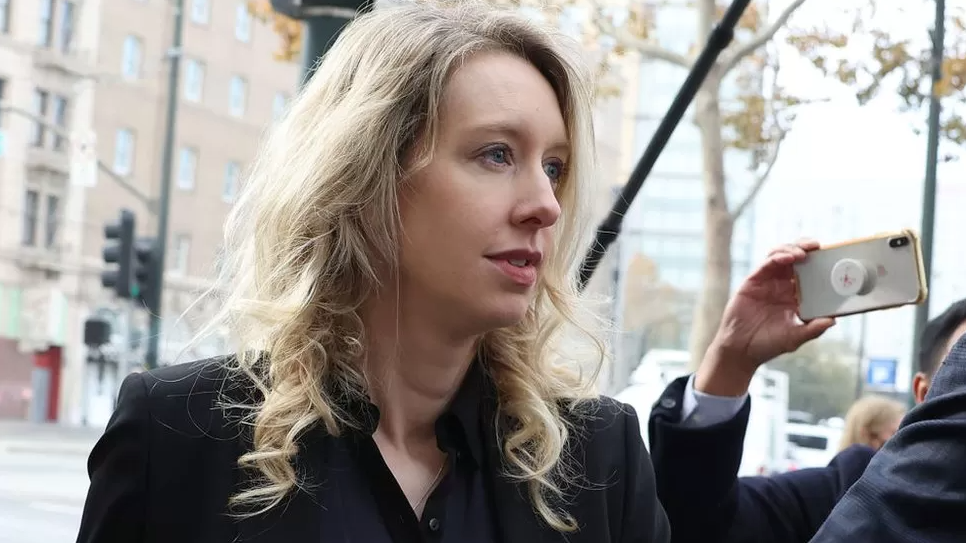|
Getting your Trinity Audio player ready...
|
Theranos founder Elizabeth Holmes has been instructed by a court to report to prison on May 30th while she continues to appeal her fraud conviction. The 39-year-old had requested to remain free as she fought against her jail sentence related to a blood-testing scam.
Holmes was sentenced to over 11 years in prison following a jury’s guilty verdict on charges of defrauding investors last year. Additionally, US District Judge Edward Davila has ruled that Holmes must pay $452 million to the victims of her fraudulent actions. She will be sharing this substantial payment with her former romantic and business partner, ex-Theranos boss Ramesh “Sunny” Balwani.
The BBC has reached out to Holmes’ attorneys for a comment, but there has been no response thus far. Balwani, who was convicted on 12 counts of fraud and conspiracy, received a prison sentence of 13 years last year. After losing his own appeal against the conviction, he began serving his sentence in April.
The court has ruled that Holmes serve her time in a federal minimum-security women’s prison located in Bryan, Texas. Holmes had previously filed a request with the Ninth Circuit Court of Appeals, asking for a delay in her sentence just days before she was due to report to prison last month. She claimed that there were significant questions regarding her case that warranted a new trial.
However, Judge Davila rejected this argument, stating, “Contrary to her suggestion that accuracy and reliability were central issues to her convictions, Ms. Holmes’ misrepresentations to Theranos investors involved more than just whether Theranos technology worked as promised.”
Holmes’s attorneys also argued that she should be allowed to remain free during the appeals process in order to care for her children. She has been living in San Diego, California, with her partner, hotel heir William Evans, and their one-year-old son, William, as well as their three-month-old daughter, Invicta.
Once hailed as the “next Steve Jobs,” Holmes was believed to be the world’s youngest self-made billionaire. She founded Theranos after dropping out of Stanford University, successfully raising millions of dollars from prominent investors such as media mogul Rupert Murdoch, former Secretary of State Henry Kissinger, and Oracle founder Larry Ellison.
However, the company’s collapse occurred in 2018 after investigations exposed the non-functionality of its blood-testing technology, which had claimed to run numerous tests with just a few drops of blood.
Theranos’ downfall has been widely covered in a television series, an HBO documentary, and a podcast, shedding light on the deceptive practices that led to the downfall of the once-promising startup.
The fall from grace of Theranos and Elizabeth Holmes has captured significant attention, with the company’s demise becoming the subject of a TV series, an HBO documentary, and a popular podcast. These media portrayals have shed light on the deceptive practices that ultimately led to the downfall of the once-promising startup.
As Elizabeth Holmes prepares to serve her prison sentence, the appeals process will continue, keeping the spotlight on her case. The outcome of her appeal could have significant implications for both Holmes and the broader tech industry. The trial has already raised questions about accountability, corporate ethics, and the consequences of fraudulent practices within the startup ecosystem.
While Holmes was initially hailed as a visionary entrepreneur, her fraudulent actions have left a lasting impact. The Theranos scandal has eroded trust in the healthcare technology sector and has prompted greater scrutiny of claims made by startups seeking investment and public trust.
As the legal proceedings unfold, the focus will remain on whether the appeal will result in a new trial or a modification of Holmes’ sentence. The case has become a symbol of the dangers of unchecked ambition and deception, serving as a cautionary tale for aspiring entrepreneurs and investors.
The story of Elizabeth Holmes and Theranos serves as a reminder that innovation must be coupled with integrity and transparency. The fallout from the Theranos scandal has led to calls for tighter regulations and increased skepticism toward revolutionary claims made by emerging companies.
As Holmes awaits her prison term, the world will be watching to see the final chapter of this captivating saga and the impact it will have on the future of entrepreneurship, corporate governance, and trust in the technology industry.
